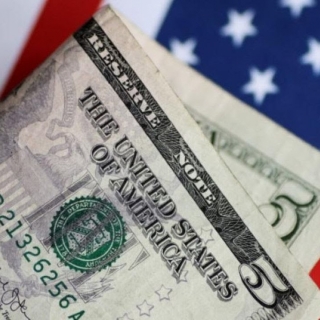


The dollar barely recouped its heavy losses on Tuesday as investors were no clearer on whether a de-escalation of the Sino-U.S. trade war was underway with Treasury Secretary Scott Bessent suggesting the onus was on China to start negotiations.
Bessent said in an interview on Monday that it was up to China to de-escalate on tariffs - the latest in a slew of conflicting signals over progress on trade talks between the world's two largest economies.
While Trump insists there has been progress and that he has spoken with Chinese President Xi Jinping, Beijing has denied such assertions.
The confusion just gave investors more reason to sell the dollar and it fell sharply against the safe-haven yen and Swiss franc in the previous session.
The U.S. currency was last up 0.11% at 142.19 yen , barely reversing its 1.2% fall, and ticked 0.18% higher against the Swiss franc to 0.8217 , having slid 0.8% on Monday.
Sentiment was helped slightly by news that U.S. President Donald Trump's administration will move to reduce the impact of his automotive tariffs on Tuesday.
"Given the conflicting signals, I think a deal is very unlikely in the near-term and China might be preparing for a protracted trade war," said Carol Kong, a currency strategist at Commonwealth Bank of Australia (CBA).
"Overall, the U.S. tariff policy is very chaotic and markets definitely don't like that, but there is indeed some growing optimism that the worst of the trade war is over."
Despite little evidence of progress being made in trade negotiations between the United States and China, both sides in recent days seemed to have softened their respective stances, with the Trump administration signalling openness to reducing tariffs and China exempting some U.S. imports from its 125% levies.
The euro was down 0.15% at $1.1404, but remained on track for its largest monthly gain against the dollar in nearly 15 years as investors flee U.S. assets and search for alternatives in Europe.
Sterling was pinned near a three-year top and last bought $1.3427. Against a basket of currencies, the dollar last steadied at 99.079, having fallen 0.6% in the previous session.
Investors were also bracing for a week packed with U.S. economic data, which may provide some early indication on whether Trump's trade war is hitting home.
Friday's jobs report will be key for markets, with preliminary first-quarter growth figures and core PCE data - the Federal Reserve's favoured inflation gauge - due ahead of that.
"I think U.S. economic data will definitely deteriorate further from here," said CBA's Kong.
"When the weak hard data comes out, I think it will further weigh on the U.S. dollar, because for the time being, I think investors are seeing the U.S. dollar as a less reliable safe-haven currency. In fact, I think (it's) trading more like a risk currency."
Source : Reuters
The USD/CHF pair weakened for the third consecutive day and traded around 0.7960 in early European trading on Tuesday. The Swiss franc strengthened on increased demand for safe haven assets, following...
The US Dollar Index (DXY) trended sluggishly around 99.06 on Monday (January 19th), as liquidity thinned as US markets were closed for Martin Luther King Jr. Day. Despite limited movement, global sent...
The US dollar is expected to rise for a third straight day on Thursday (January 8), but trading remains cautious as investors position themselves ahead of Friday's Nonfarm Payrolls (NFP) report. Recen...
The dollar index edged up to 98.5 on Tuesday, its strongest level in more than two weeks, as investors focused on a slate of key economic data for the US. Recent indicators have pointed to some soften...
The US dollar opened 2026 weakly on Friday. Throughout last year, the dollar was pressured by many major currencies due to narrowing interest rate differentials between the US and other countries. Con...
Oil prices stabilized on Thursday (February 12th), as the market reassigned a risk premium to US-Iran tensions despite US inventory data showing swelling domestic supplies. This movement confirms one thing: geopolitical headlines are still more...
Gold prices weakened slightly on Thursday (February 12th), as more solid US employment data reduced market confidence in an imminent Federal Reserve interest rate cut. The strong employment data prompted market participants to shift expectations of...
The Hang Seng Index reversed its downward trend in Hong Kong on Thursday (February 12th), weakening by around 0.9% to around 27,000 after a strong session earlier. This decline halted the momentum of the short term rally, as investors began to...